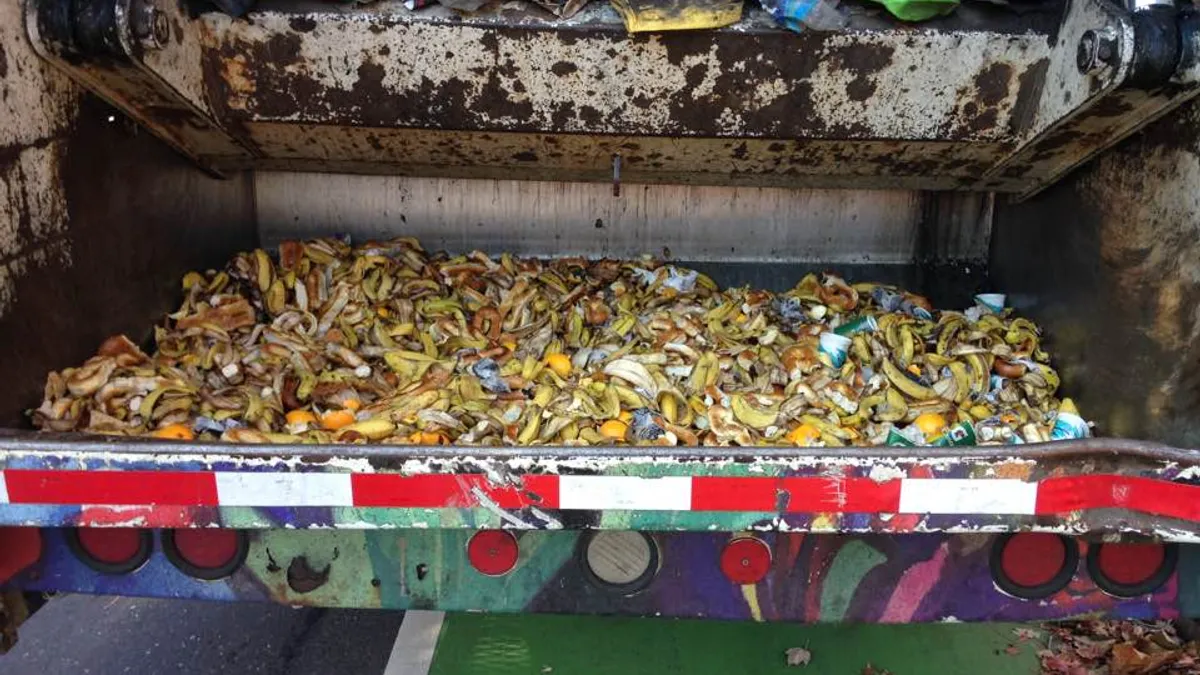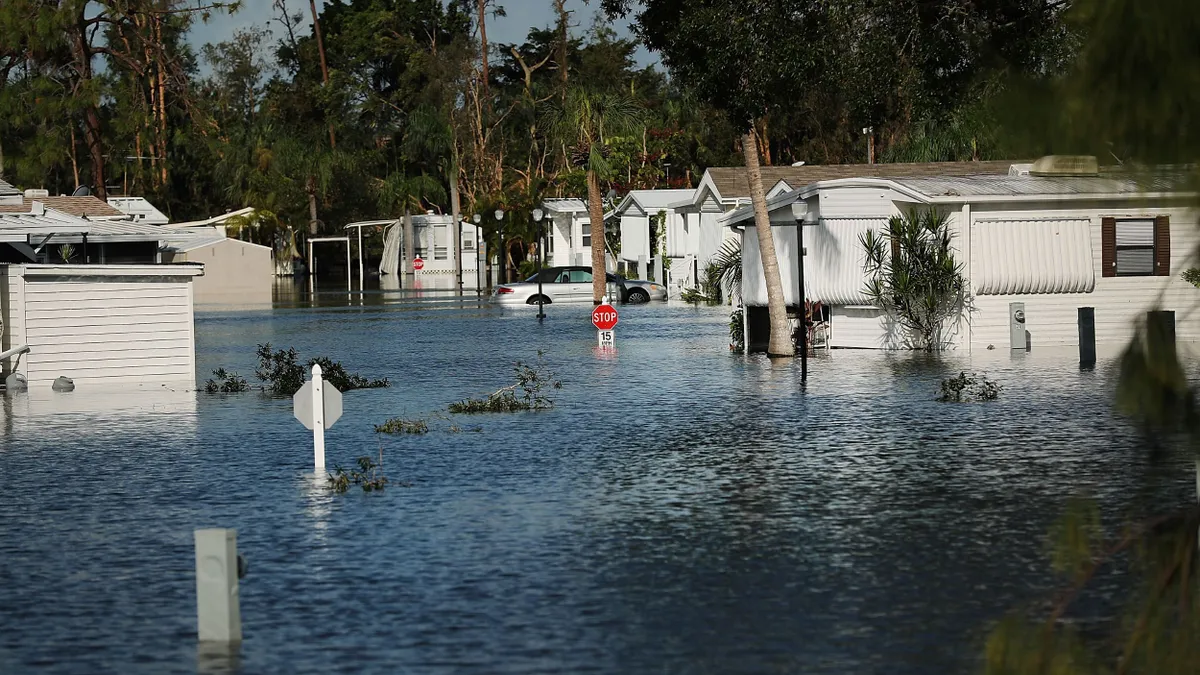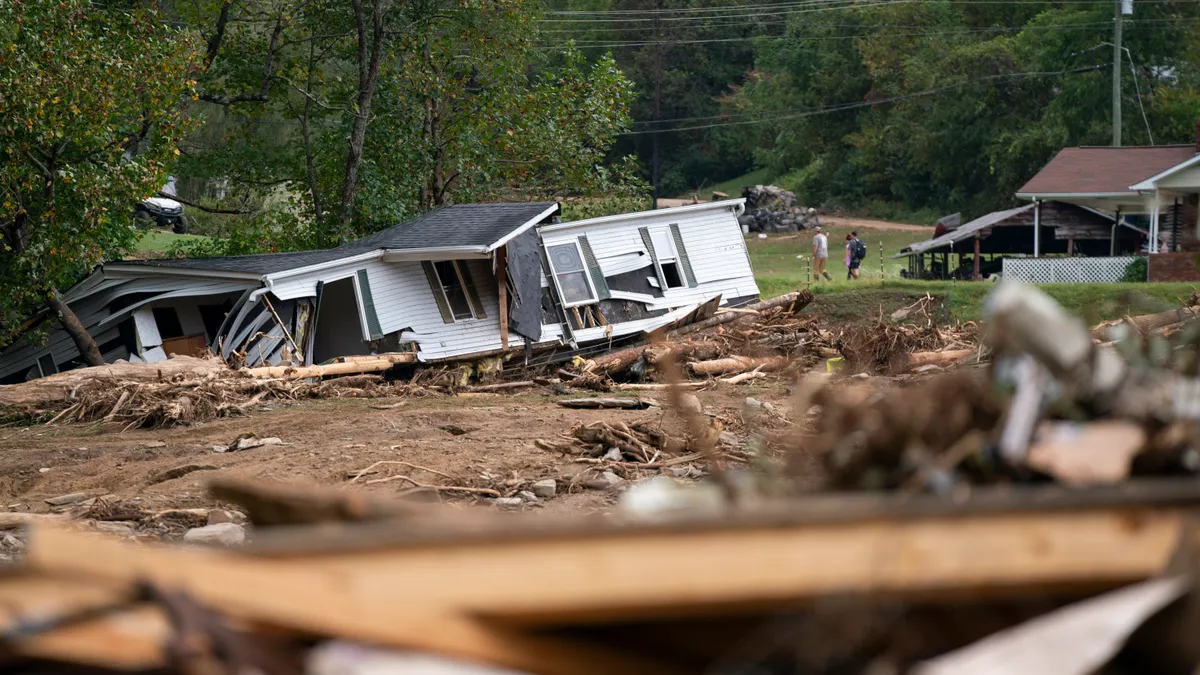In 2013, Atlanta resident Jasmine Crowe started cooking meals every two weeks for up to 500 people in her community experiencing homelessness and hunger.
Her menus included four entree options, desserts, breads and up to 15 side items — ranging from Hawaiian barbeque to soul food-themed cuisines — all cooked at home in her kitchen.
Crowe delivered the food "straight to the places where people were experiencing homelessness," bringing tables, plates, napkins, and her expansive menus "to the streets" to provide a dignified restaurant-like experience.
Today, Crowe has added a new venture to her plate: food waste management company Goodr.
Born out of her time feeding others, Goodr provides users with a ledger and blockchain-enabled platform to track food waste "from pickup to donation" and to help businesses tap into significant tax deductions. Smart Cities Dive caught up with Crowe, Goodr's founder and CEO, to learn more about the company, why she thinks food waste should be reclassified as a utility, and how she envisions a better future for cities' circular food economies.
The following has been edited for clarity and brevity.
SMART CITIES DIVE: How did you become interested in food waste?
JASMINE CROWE: Through that process [of feeding individuals experiencing hunger], people would say which restaurants donate food. Then I started thinking, "Okay, let me research this and let me see what's taking place with all this excess food." And that's when I learned about food waste. I became really upset by how much food was going to waste while so many people were going hungry. That's what really got me started with getting on the path to Goodr.
Why do you consider hunger to be a logistics issue?
CROWE: I consider hunger to be a logistics issue, but not a matter of scarcity. If we have 72 billion pounds of food that goes to waste right now, the solution to hunger should not be, "Let's produce more food for the growing population of people going hungry." It should be, "How do we connect all this food that's going to waste with people that need it?"
You have said that food should be reclassified as a utility. What do you mean by that?
CROWE: The biggest thing for me is that, if [about] 23-24% of everything in our landfills is food waste, then cities should be looking at offering RFPs (request for proposals) and bringing businesses in place...that are looking to divert this so it's not just composting services that you're pushing in a city, but you're also pushing diversion services and actually looking at this as a way to reduce hunger in your city. Those are some of the things that I'm really trying to get cities to look at. There should be policies for poverty. The advantage of a system like this that works and is in place, is that we can actually really get food to people and every city should be happy about that.
Tell us more about how Goodr works, and how it uses blockchain technology to help organizations tap into unused tax deductions?
CROWE: [Goodr is] a food delivery app but in reverse. [It’s] an app on the front end that allows businesses, when they have excess food that typically would be put in landfills, to now request a food pickup. We get that food picked up and we deliver it to a nonprofit, typically within a three to five mile radius of where we recover it from.
And then we build a dashboard that provides a lot of data for those customers. They're able to see who the food is going to; which kind of nonprofits and causes they're supporting but also … how many gallons of water do we save; how much carbon dioxide or methane gas are we helping to reduce from being emitted into the environment. Our platform rolls all of that up. But then it also rolls up the tax savings that a business is able to claim for donating their food as opposed to wasting it.
We’re dealing with tax deductions so if the IRS ever came to our customers and said, "How are you guys writing off $10,000 worth of food donations," … there's actually a record of every single time food was donated; who it went to; and the actual value. We verify they are in fact donating this and the nonprofit verifies they did receive the food that's listed in those content...so now there's more a record in place.
What cities do you think have created effective circular food economies?
CROWE: A U.S. city doing a good job is Austin, TX. Honolulu is doing a good job as well. They put in policy around organic recycling. That's so necessary and so needed. We need more businesses that are not forced to do this, but that are at least incentivized to do the right thing. Austin has a food waste ordinance that they put in place now for which is great. Honolulu actually fines businesses...for not donating food and for not diverting their waste so we are seeing some really strong things happening.
You've also said that France and Italy are two countries with effective circular food economies. What makes their work so successful?
CROWE: France and Italy take the cake in such that they've actually ruled and made it illegal for businesses to throw this food away. That changes the game. It's one thing to actually incentivize you to do it, it's a whole other thing when we're saying to you, "If you do this, you're going to receive a fine. And that fine can be up to 5,000 dollars." Now it really starts to impact businesses' bottom line.
Editor's Note: There is no relation between Jasmine Crowe and the author of this piece, Cailin Crowe.




















